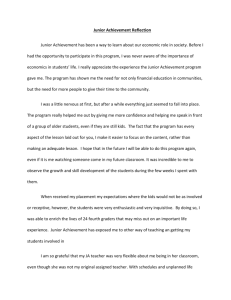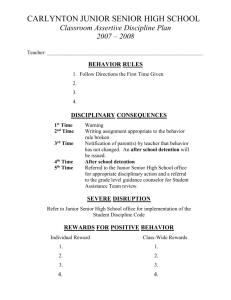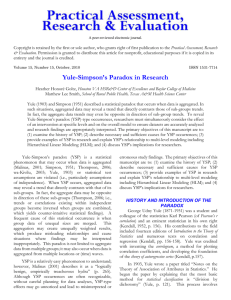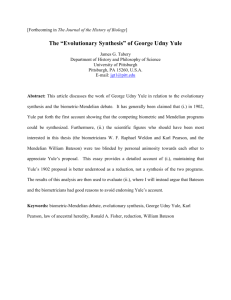A paradox in using percentages
advertisement
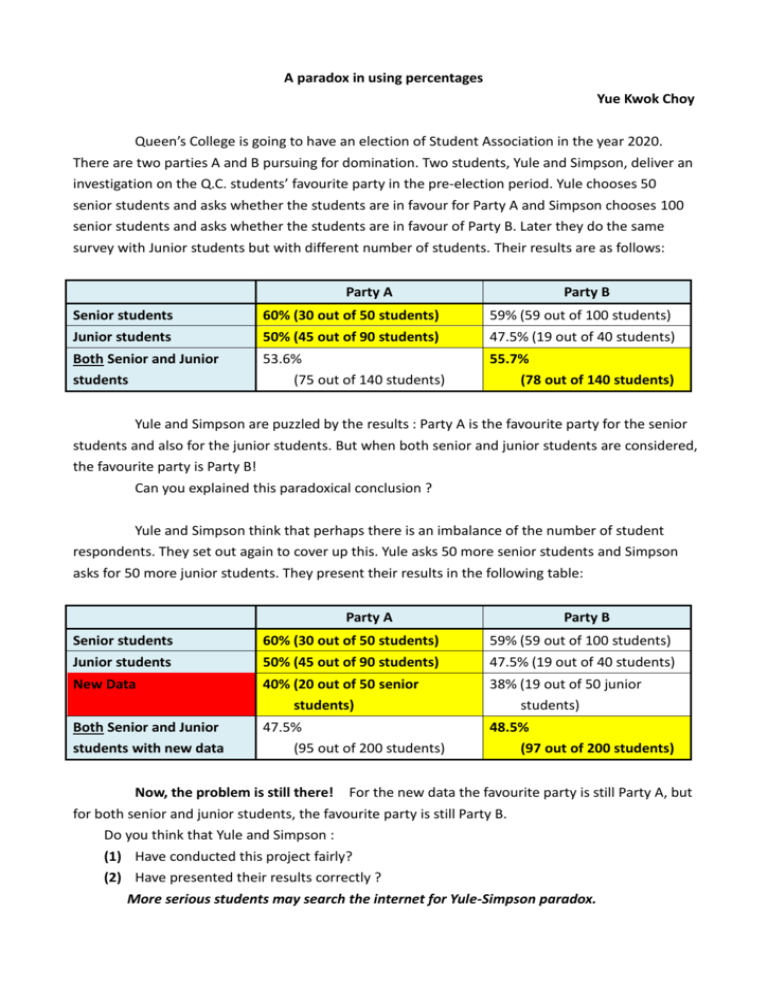
A paradox in using percentages Yue Kwok Choy Queen’s College is going to have an election of Student Association in the year 2020. There are two parties A and B pursuing for domination. Two students, Yule and Simpson, deliver an investigation on the Q.C. students’ favourite party in the pre-election period. Yule chooses 50 senior students and asks whether the students are in favour for Party A and Simpson chooses 100 senior students and asks whether the students are in favour of Party B. Later they do the same survey with Junior students but with different number of students. Their results are as follows: Party A Party B Senior students 60% (30 out of 50 students) 59% (59 out of 100 students) Junior students 50% (45 out of 90 students) 47.5% (19 out of 40 students) Both Senior and Junior students 53.6% (75 out of 140 students) 55.7% (78 out of 140 students) Yule and Simpson are puzzled by the results : Party A is the favourite party for the senior students and also for the junior students. But when both senior and junior students are considered, the favourite party is Party B! Can you explained this paradoxical conclusion ? Yule and Simpson think that perhaps there is an imbalance of the number of student respondents. They set out again to cover up this. Yule asks 50 more senior students and Simpson asks for 50 more junior students. They present their results in the following table: Party A Party B Senior students 60% (30 out of 50 students) 59% (59 out of 100 students) Junior students 50% (45 out of 90 students) 47.5% (19 out of 40 students) New Data 40% (20 out of 50 senior students) 38% (19 out of 50 junior students) Both Senior and Junior 47.5% 48.5% students with new data (95 out of 200 students) (97 out of 200 students) Now, the problem is still there! For the new data the favourite party is still Party A, but for both senior and junior students, the favourite party is still Party B. Do you think that Yule and Simpson : (1) Have conducted this project fairly? (2) Have presented their results correctly ? More serious students may search the internet for Yule-Simpson paradox.
